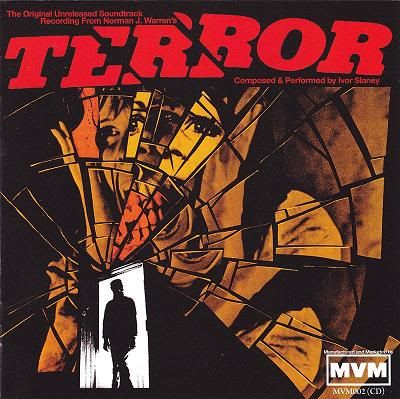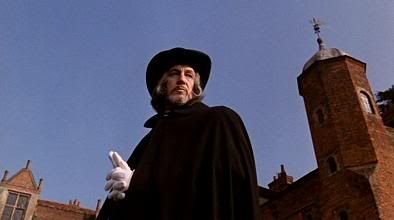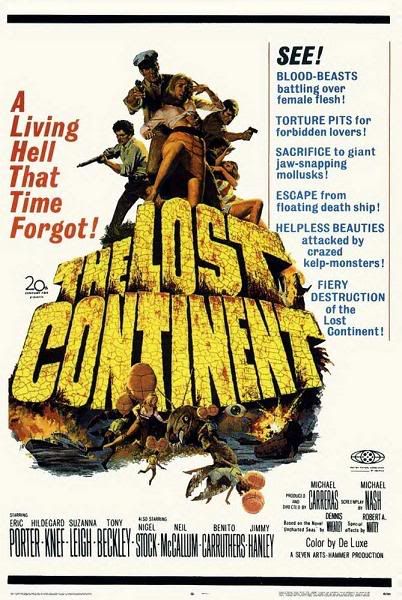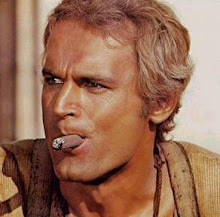
Norman J. Warren was one of a number of directors who took up the British horror movie mantle when Hammer's flame fizzled out in the the mid-'70s. Along with the likes of Pete Walker (Frightmare, The Comeback), Warren ditched the period settings and Gothic style associated with Hammer in favour of bucketfuls of violence and a modern setting.
In Terror, Warren brilliantly toys with this break from tradition with a false start of an opening in which we see a witch (who possesses one of the most annoying screams I have ever heard) put a curse on the rich family who have ordered her to be burned at the stake. So far, so Hammer. However this first scene turns out to be the end of a movie being watched in the present day by a number of young film industry types.
The producer responsible for this film-within-the-film is James Garrick (played somewhat blandly by John Nolan), who runs the fictional Garrick Studios in North London and is also a descendant of the accursed line. His only other living relative is Ann, a cousin who he has only recently become acquainted with. The arrival of Ann into Garrick's world heralds the first of a number of gruesome, increasingly bizarre killings, ranging from an actress attached to a tree by a knife through the neck to a policeman repeatedly run over by a driverless car to a director being crushed by scenery flats, battered by lighting rigs and strangled by spools of film in a possessed film studio.
The stylishly shot murder scenes are undoubtedly the high points of Terror . In particular a couple of sequences where beautiful women make ill-advised journeys through the woods in the dark feel like they could have come straight out of the very best Italian giallos, with their killer's-point-of-view camerawork and Ivor Slaney's brooding electronic score (recently re-issued by Moscovitch Music on CD with the score from Warren/Slaney's excellent Prey) making for super-tense viewing.
The other saving grace of Terror is its seedy depiction of London's low-budget film industry in the '70s. From the laughably bad bawdy comedy Bathtime with Brenda that is being filmed at Garrick Studios to the 'Theatre Girls Hostel', where young female lodgers alternate auditions for cheap films with shifts at the local strip club, there's not a hint of glitz or glamour, and feels all the more real for it.
Putting the set pieces and excellently grotty atmosphere aside, Terror is undeniably a flawed movie, though at a mere 87 minutes it doesn't really have time to outstay its welcome. The confused supernatural plot and unnecessary number of characters over-complicate what should have been a taut, stylish slasher film, though there's still enough good stuff here to be worth your time.


